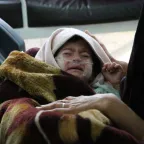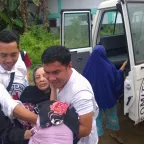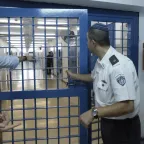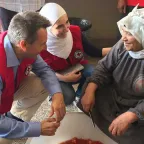Philippines: Marawi Operations Update No. 1
Fighting within Marawi City in Lanao del Sur, southern Philippines, is still ongoing, and the humanitarian needs are increasing. The ICRC has stepped up its response to assist thousands of displaced …
Fighting within Marawi City in Lanao del Sur, southern Philippines, is still ongoing, and the humanitarian needs are increasing. The ICRC has stepped up its response to assist thousands of displaced …
What do we really know about violence against health care in conflict? Not enough, according to a report published recently by a research team from the London School of Economics and Political …

Over the last two years, the Taliban, Afghan forces and other groups have conducted more than 240 attacks on medical facilities, in violation of humanitarian laws. These attacks erode an already …

29-05-2017 The ICRC is holding a one-day course, on the management of human remains during large-scale emergencies, in Dushanbe today. The course will draw more than twenty participants: officials …
Encouraging perpetrators of rape to change their behaviour is no easy feat, but it’s something Papua New Guinean nurse Rose Aret is determined to achieve. Rose works with the ICRC in the remote …
Andrew Gardiner, ICRC Senior Livelihood Consultant, talks about his experience working for the ICRC and the economic security project in …
26-05-2017 Thousands of people continue to flee the fighting in Marawi City in Lanao del Sur province, southern Philippines, seeking safety in neighboring areas such as Iligan City. Many families are …

Jerusalem/Geneva – Thirty-nine days into a collective hunger strike by Palestinian detainees in Israeli prisons, the International Committee of the Red Cross (ICRC) calls on all concerned parties and …

Debate on the Protection of Civilians in Armed Conflict, Statement to the UN Security Council, New York, Speech given by Ms Christine Beerli, vice-president of the ICRC. The tragedies I've seen so …
This is my 5th visit to Syria and each time I come, I see more suffering. Nearly half of the population has been displaced and all are exhausted by conflict. The humanitarian needs are enormous, and …

Try one of the following resources:
Created in 1863, the ICRC library, alongside the ICRC archives, provides an indispensable documentary reference on the organization itself and international humanitarian law.
International humanitarian law is based on a number of treaties, in particular the Geneva Conventions of 1949 and their Additional Protocols, and a series of other instruments.
Customary international humanitarian law consists of rules that come from "a general practice accepted as law" and that exist independent of treaty law.